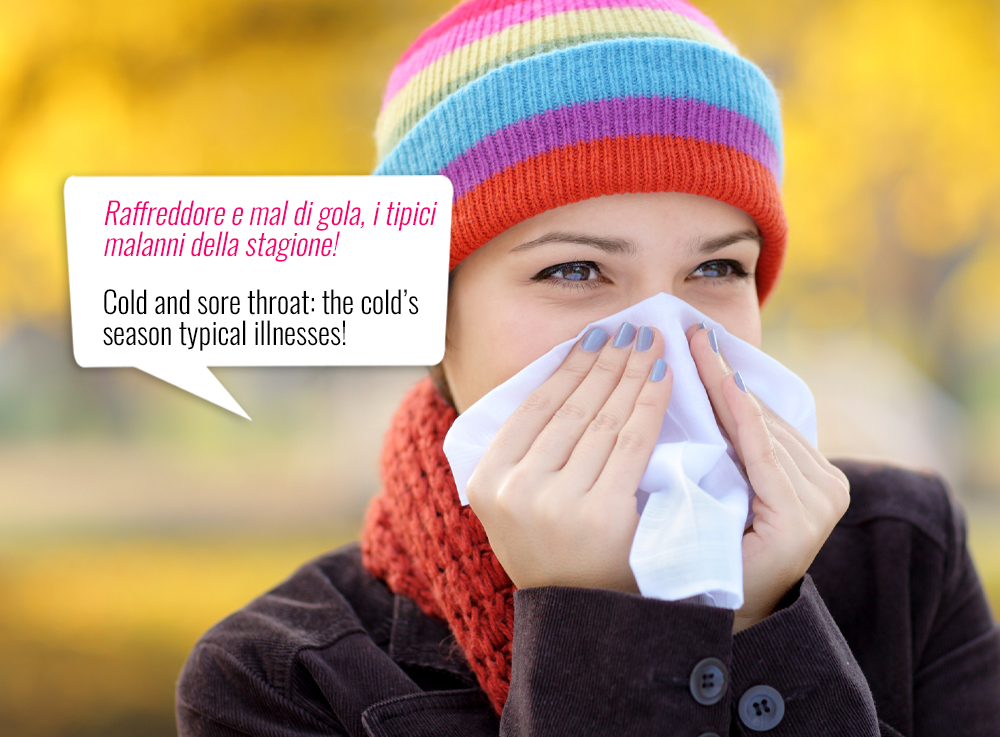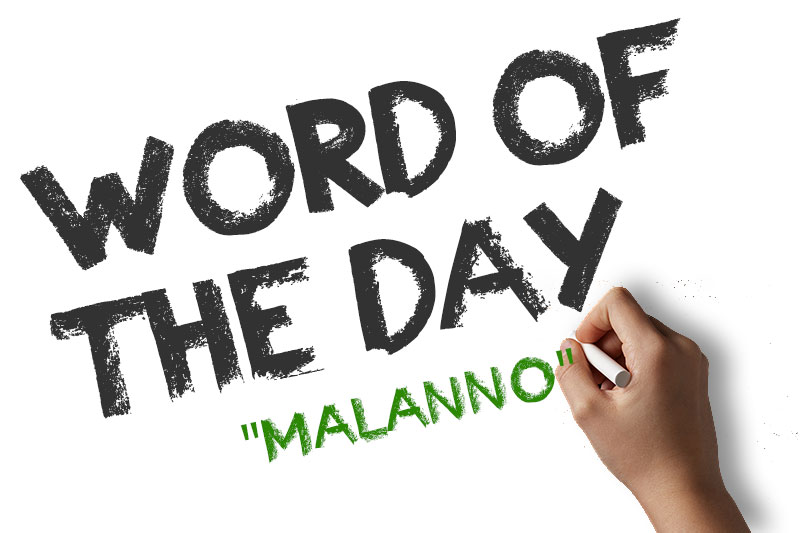Finally, most of us are vaccinated, and old-fashioned colds are no longer as fearful as they’ve been for the past two years. Yes, fall and winter malanni are back. Today’s word is malanno (mah-lahn-noh, plural mah-lahn-nee), and we translate it in English with “ailment,” “illness,” or even just “cold.”
Indeed, the word is usual when we speak about sneezing, coughing, and having a bit of a temperature, all common stuff this time of the year: Mettiti una sciarpa o ti prenderai qualche malanno (“put a scarf on, or you’ll get a cold”), we say, but also Con questo vento rischi di prenderti un malanno (“you’ll catch a cold with this wind”).
However, malanno has a much wider meaning: it comes from the union of two words, malo and anno (so, “bad” or “evil,” and “year”) and it became common in the 13th century. Dante used it as a synonym of “misfortune” and, indeed, this is its most generic meaning still today, even if you barely see it used that way.
Some common expressions, like la vecchiaia porta ogni malanno (“old age brings along all types of ailments”) use malanno with the general meaning of “illness,” although you’re more likely to see the word acciacco in that context instead.
For most modern Italians, malanno remains a synonym for seasonal sniffles, nothing too serious indeed.
- Raffreddore e mal di gola, i tipici malanni della stagione!
- Cold and sore throat: the cold’s season typical illnesses!

- A scuola, i bambini prendono qualsiasi malanno
- Kids can catch anything at school!

- Ho mal di gola da un paio di giorni: devo aver preso qualche brutto malanno
- I’ve had a sore through for a couple of days. I must have caught a nasty cold






























